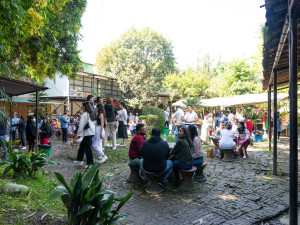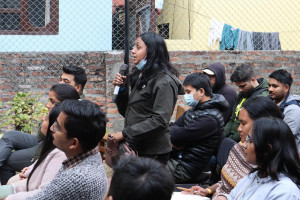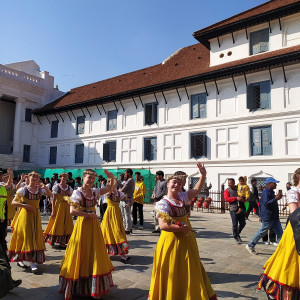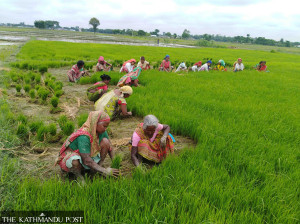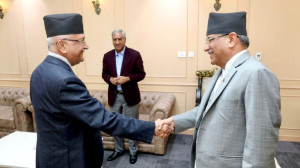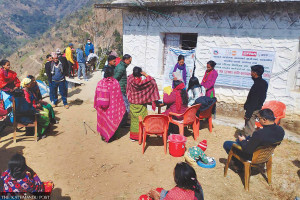 16.12°C Kathmandu
16.12°C KathmanduCulture & Lifestyle
A story of resilience and resolve
Rewati Gurung’s journey, marked by trials and triumphs, has culminated in the creation of Kokroma, a sustainable brand that reflects her commitment to empowering women.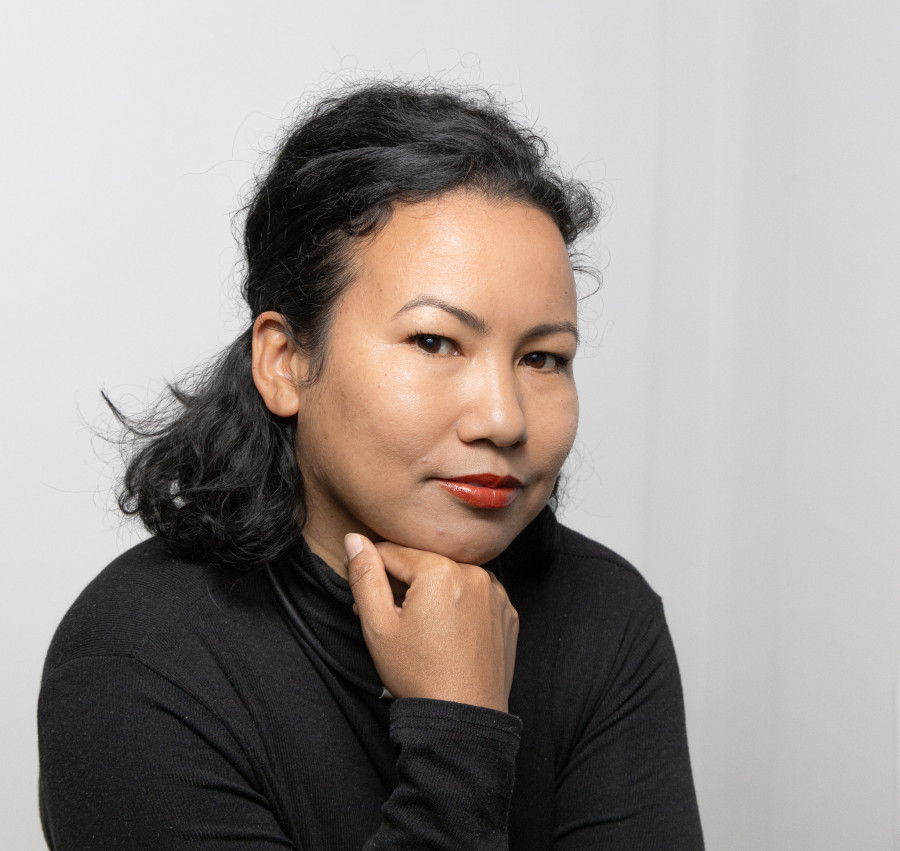
Aarati Ray
Rewati Gurung is an entrepreneur, filmmaker and social activist. She is the driving force behind the non-government organisation (NGO) Moving Mountain Nepal and the film company Moving Mountain Pictures.
Both companies support education in rural areas and foster awareness about menstrual practices. Her documentaries on women’s issues have garnered national and international acclaim, receiving various awards. She is also the founder of Kokroma, a brand specialising in children’s clothing.
“I’m not sure how to define my role. People commonly refer to me as an entrepreneur or a social worker, but I don’t fit into those labels neatly,” says Gurung, adding that she just sees herself as someone who “gets things done and tackles problems as they arise.”
The 2015 earthquake served as a wake-up call for Gurung, making her realise how fragile life really is. She reveals that surviving the devastating earthquake felt like she was given a second chance at life. Seeing the earthquake’s impact on people, she wanted to help in any way she could.
So, Gurung used her savings to provide tea to earthquake victims at Nepal Medical College and Nepal Orthopaedic Hospital. When she shared this initiative on Facebook, it evolved into a fundraising campaign, drawing donations from others.
After two weeks of working on the tea project, she visited Sindhupalchowk and saw the dire state of the children from families that were severely affected by the earthquake.
Motivated to help them, she founded Moving Mountain Nepal. The NGO provides waterproof school bags with study essentials for primary school kids, eco-friendly sanitary pads, and supports painting informative murals in rural classrooms.
Another event from 2015 that impacted her greatly was her trip to Finland. Initially, she had been planning to continue her studies in Finland, but after the earthquake, her involvement in social projects made her more committed to working in Nepal. She had already completed her master’s in English Literature in 2007 and wanted to enrol in courses related to Finnish art, culture and history. Later, she ended up taking only a summer course on gender, culture and politics at the University of Helsinki.
During her stay there, Gurung visited museums frequently, which sparked her interest in photography and filmmaking. She was also fascinated by the Finnish ‘Baby Box’, a free maternity package for pregnant women provided by the government. These two interests would later become the inspiration behind Moving Mountain Pictures and Kokroma.
Perhaps the Gurung of today, guided by the principle of ‘sustainability’ in every step, owes some of her ethos to a meeting with Peter Vesterbacka, founder of Slush and Angry Birds.
While studying in Finland, Gurung was concurrently raising funds for earthquake relief. Reaching out to Vesterbacka via email, she was able to organise a meeting with him and sought funding for her project during the meeting. He, however, wasn’t immediately sold on her project, questioning its long-term sustainability and potential impact.
He also pointed out that unless the working adults in the household (affected by the earthquake) start earning enough and become financially independent, the children (to whom she donated those educational materials) might still face poverty and lack of resources.
This made Gurung reevaluate her life’s purpose. She thought about his question often. Influenced by her study in Finland and recognising the power of visual media (videos and photos) from the tea campaign, she founded Moving Mountain Pictures in 2017.
She created documentaries on social and gender issues, focusing on women entrepreneurs in Nepal. Her work earned her numerous awards, including 2nd place in the Dan Church Aid’s Dignified Menstruation Short Video Contest (2018), KIMFF’s Doc Lab Pitch Award (2018) for ‘Monkey Business’, and first place in the 16th International Entrepreneurship Forum Conference’s Short Film Competition.
While she enjoyed making documentaries, one question that plagued her often was, “How can I create more jobs?” Yet again, the sustainability of her work troubled her. Documentaries only employed a few individuals, and she wanted to help those in need. In 2018, clarity dawned on Gurung when a woman from Sindhupalchowk tearfully expressed guilt about receiving free items from Gurung as part of the Moving Mountain Project.
“At that moment, I realised that helping others could be a double-edged sword. While I did like helping others, I could understand how constantly getting material or financial assistance from another person probably didn’t sit right with them and hurt their egos,” she says.
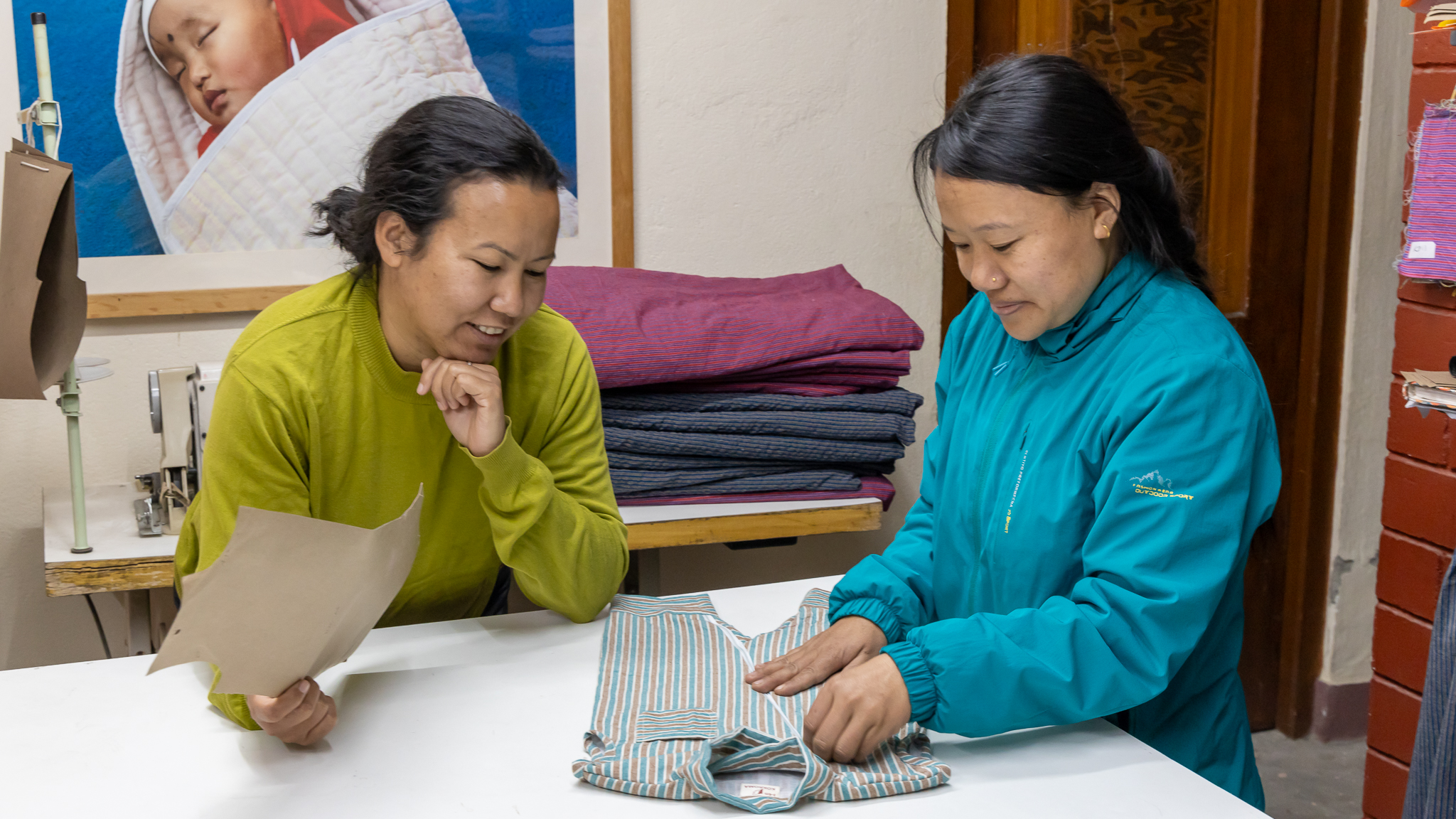
This realisation inspired the creation of Kokroma. When establishing the company, Gurung fixated on the question posed by Vesterbacka. Therefore, Kokroma aims for sustainability through local resources, job creation for locals and self-sufficiency.
Noticing a decline in traditional garment-making methods in Nepal, Gurung established Kokroma to revive things like bhoto sets, kokro cribs and khasto blankets. The company sources all their raw materials from Nepal.
Currently, 15 women from mountainous areas like Solukhumbu and Kavre are employed at the company. “Working within our culture doesn’t mean being static—culture evolves, so should our approach,” says Gurung, sharing that she includes both traditional and modern elements in Kokroma products.
The fabrics used by the company, mainly cotton, are woven by prisoners in Kathmandu who are trained in dyeing and weaving. This equips them with skills for the future and provides income to support their families while serving time. The company follows a zero-waste policy, recycling all off-cuts and scrap cotton.
Gurung’s journey hasn’t been easy. She faced numerous challenges in raising funds for her projects. She used up most of her savings while conducting the tea campaign in 2015. What she earned from making films and documentaries was also spent on Kokroma.
Starting the company was particularly challenging, and she nearly gave up right at the start. She recalls being completely lost and without funds or regular customers, contemplating whether she should return to filmmaking. One day, when she was in Himalayan Java, drinking coffee and thinking about her company’s future, a stranger inquired about the Kokroma pamphlet she had with her, and Gurung shared her dream.
The stranger, a woman who was running late for a flight, left her email and sent five thousand dollars the next day to support Kokroma. “At that moment, I resonated with the woman from Sindhupalchowk who had told me how guilty and burdensome she felt to receive money.” Initially hesitant and overwhelmed by the kind gesture, Gurung took three days to respond to the email, questioning why the stranger believed in her when she was on the verge of giving up.
With encouragement from a friend and inspired by the stranger’s support, she used the funds to establish Kokroma, taking it as a sign from the universe to continue the path down her dreams. Kokroma has since become a support system and source of hope for her employees.
Gurung aspires to transform Kokroma into an internationally renowned baby and maternity care brand and continue creating opportunities for Nepali women. Over the last five years, she has faced challenges, including divorce, financial losses, cooperative scams, and broken relationships.
“At one point, I even questioned my life choices. But looking back now, I am happy I went through that painful journey and proud of what I have achieved,” she admits.
Gurung also encourages everyone not to give up on their dreams, saying, “It’s better to go through a painful journey pursuing your dreams than live a soulless life enslaved to something you don’t want.”







.jpg&w=200&height=120)




